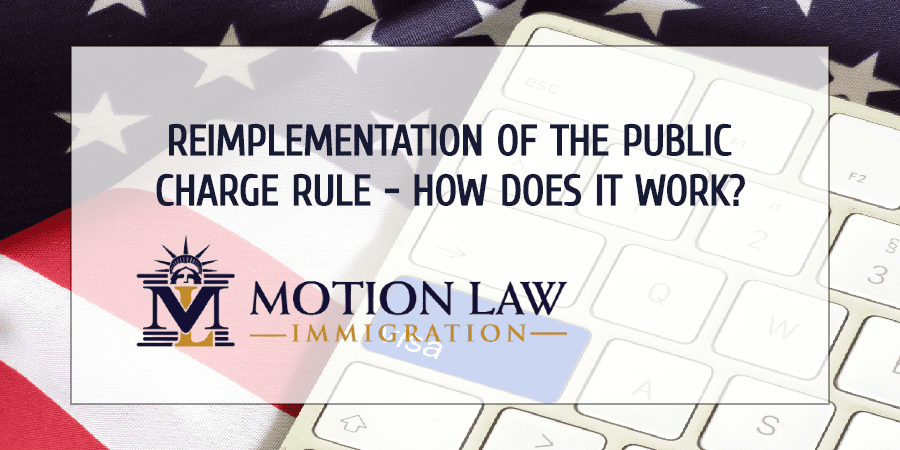Reimplementation of the Public Charge Rule – How does it work?

The “Public Charge Rule” in the history of the US
The “Public Charge Rule” has been part of the US law for more than 100 years, according to the official website of the US Citizenship and Immigration Services (USCIS), which is the federal entity in charge of responding to immigration applications.
Broadly speaking, this rule states that immigration applications could be rejected if there is a possibility that foreigners become a burden on the local economic system.
The Department of Homeland Security (DHS) published the Final Public Charge Rule in February 2020, explaining the parameters of inadmissibility in the US.
If you have an immigration case, contact Motion Law and follow experts’ advice.
What does it mean to become a “public charge”?
When immigrants applying for an adjustment of immigration status or an extension of their residence permits have used one or more public benefits for more than 12 months in a 36-month period, they could be inadmissible in the US under the “Public Charge” premise.
Some of the public benefits include food stamps, Supplemental Security Income (SSI), programs that offer monetary benefits for income maintenance, and more.
This rule has several exceptions and there are multiple scenarios that exempt immigrants from the public charge premise. Among exceptions are asylum seekers, refugees, victims of human trafficking or crimes, inter alia.
It is important to clarify that this rule may change depending on the specific case of the applicant. Our team of expert attorneys can help you if you have questions about the “Public Charge Rule”.
The “Public Charge Rule” amid the global Coronavirus pandemic
At the end of July 2020, a federal judge declared that this rule should not be in effect during the health crisis caused by the global Coronavirus pandemic, mainly because immigrant communities were not using medical services, fearing that their applications would be rejected, which increases the sanitary risk.
However, in early September, the Second Circuit Court of Appeals lifted restrictions and stated that the “Public Charge Rule” could take effect again.
Visit our Blog section to keep up to date with immigration news!
The re-implementation of the “Public Charge Rule”
Form I-944 (Declaration of Self-Sufficiency) is available again on the USCIS website and this is the document used for the “Public Charge Rule”.
Following the Second Circuit verdict, the USCIS will begin reviewing applications for adjustment of immigration status and other requests using form I-944 as of October 14, 2020.
In other words, if you submit your immigration application before October 14, the USCIS will not request this form, but may request other documentation.
Reliable help with submitting your immigration application
As we can see, immigration in the US is constantly changing and it is essential to have the constant accompaniment of experts, who are up to date with current policies.
We recommend for you to seek reliable help before submitting your immigration application, so that you choose the right process and organize the required documentation effectively and efficiently.
If you have any questions about an immigration issue or relating to a case you may have currently in progress, then please don’t hesitate to contact us for a FREE Phone Consultation with one of our expert immigration attorneys.
Simply call Motion Law today at: (202) 918-1799.